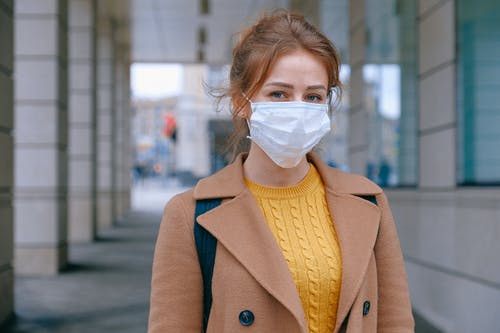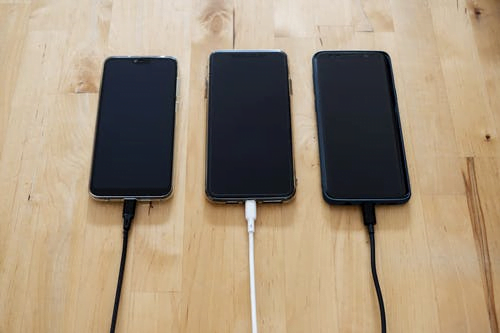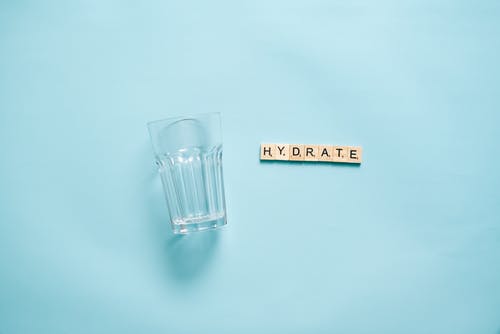This past 18 months have been, for many of us, a challenge like we’ve never experienced before. With health anxieties, changes to our working situation or status and periods of isolation to name just a few specific examples, it comes as a huge relief that lockdown is currently gradually easing and more people are being vaccinated daily in the fight against Coronavirus. Whilst this is certainly a light at the end of a sometimes seemingly endless tunnel, for those suffering the effects of ‘Long Covid’, the challenges may feel far from over. Whilst this is still such a new condition and research into it is constantly ongoing, there are now a few identified tips that are thought to help support recovery. This blog aims to outline some of these.
Although most people who have had Covid-19 recover quickly, for some the effects of the virus can last for weeks or even months. This is known as ‘Long Covid’. This doesn’t only affect those who were seriously unwell or hospitalised with the virus and the symptoms reported are wide ranging. These can include fatigue, breathlessness, anxiety/depression, difficulty focusing or thinking straight (‘brain fog’) and joint or muscle pain. It’s important to note that whilst research into this particular virus is a strong focus at the moment, longer lasting effects aren’t specific to this virus only and have been identified in many well known viruses before. Read on for some of the key identified ways to help support Long Covid recovery.

Pacing – When suffering from Long Covid, many people report having some ‘good days’ where they feel somewhat better and some ‘bad days’ where they struggle greatly. It’s important to pace yourself and avoid overdoing it even on days where you may think you’re feeling better and more able. Plan your activities in advance, breaking tasks that feel difficult down into smaller chunks. Try taking regular short rests as opposed to few longer ones so that you’re resting before you become exhausted. Consider alternating harder tasks with less demanding ones and monitor at what time of day you usually feel most/least energised and plan accordingly. This may feel particularly frustrating for those who had active lifestyles before getting the virus, however it’s important to accept that recovery will take time and is likely to be more successful if achieved gradually. Breathing techniques (see below) can also be helpful to manage breathlessness thus enabling you to better carry out physical activities and reduce sedentary time on ‘bad days’.
A good idea is to think of yourself like a phone battery (bear with me here!) On a good day, you’ve recharged overnight and have 100% energy. Elated with this, you proceed to call all your friends, watch a few videos, take some photos and play a couple of games and so on. You’re down to 50% by lunch time as a result of all this activity but you still have plenty of life left so join a Zoom call with friends and before you know it your battery gets to 0%. As a result of this excessive activity the phone then takes much longer to recharge than it would if you’d plugged it in when it got to say 40% battery life remaining. Just because you might feel great one day, try not to overdo it and wear your batteries out. Recharge regularly to keep your battery topped up and you’ll be able to function much better and more steadily over a longer period of time.

Weight Management and Nutrition – Weight is something that has been discussed frequently over the past few months in relation to Covid-19 and other illnesses. Whilst someone’s weight does not predict how badly they will suffer with coronavirus or Long Covid, carrying excess weight puts extra strain on the body’s vital organs including the heart and lungs. This can make symptoms more pronounced and recovery slower. Whilst losing weight can help to improve breathlessness and reduce stress on the heart, it can also help to ease aches and pains as it takes some strain off of joints and muscles . As weight loss is often achieved by a combination of exercise and nutritional changes, the benefits of this not only stem from the end result of weight loss but also the practices that get you there. Exercise has both mental and physical benefits such as producing endorphins that can help to ease pain and boost our mood (both very relevant to some Long Covid symptoms) and improving our diet can help to fill any nutritional gaps that may also hinder recovery. Some sufferers of fatigue for example have been found to be deficient in iron and some of the B vitamins. This affects the bodies ability to deliver oxygenated blood to vital organs which can compound any symptoms of fatigue or weakness.

Another crucial part of our diet is our hydration levels. Even slight dehydration can affect our mood, energy levels and how well our organs are able to function. Good hydration is essential for our immune system as well as lubricating our joints and so many other bodily processes. Read my previous blog on hydration and make sure you’re addressing this to help support long covid recovery. It’s an accessible, affordable and easily achievable so you can get started on this straight away!

Mental Health – With stress, anxiety and depression affecting many sufferers of Long Covid, it’s important that we consider mental health as well as physical health in any recovery plan. It’s important to be kind and patient with yourself during recovery, just as you would with a loved one. We are often much harder on ourselves but it’s important that we accept recovery may be a longer road with some ups and downs along the way. Keeping in touch with loved ones can help and it’s important to talk about how you’re feeling and reach out for support. Having a daily routine can help support mood stability and also bring a sense of some control to our lives. Staying active (whilst still ‘pacing’) will help to release endorphins as explained above which can help to boost our mood. Mental health can also affect our breathing and heart rate and so activities that encourage a relaxation response such as mindfulness and meditation can help. Yoga can be a gentle way to help both mental and physical health and recovery from Long Covid. Anything that helps us to feel relaxed, happy, comforted and just generally positive is a crucial part of recovery. This could include sitting outside, reading, watching a feel good show or movie, doing jigsaws, journaling or listening to your favourite music to name just a few options.

Breathing Practices – With breathlessness being a commonly reported symptom of Long Covid, it’s important that recovery works to help improve this. It’s essential to keep using our muscles and so to keep up activity levels wherever able as if our muscles become weaker our body needs to work harder when we use them and so we can feel more breathless. Exercise is key here and should be built up gradually and with the help of an exercise or health professional. Try starting with short walks and simple strength exercises and build up from there.
Specific breathing techniques can help to regulate breathing and exercise the muscles essential to this process. See my previous blog on breathing techniques including square breathing, diaphragmatic breathing and 7/11 breathing for specific guidance on this.
Alcohol – Last, but not least, it’s worth a mention here. Although it is something that many people turn to for comfort and a boost in times of need, the effects of it can be detrimental to recovery from Long Covid and other illnesses. Alcoholic drinks contain ‘empty calories’ with no nutritional value and so can hinder healthy weight management, especially at a time when activity levels are reduced. The after-effects of alcohol include feelings of low mood, anxiety and ‘brain fog’ thus compounding some of the difficult symptoms of Long Covid and we are likely to have reduced energy in the days following and so will find it more difficult to be active. As discussed earlier, it’s important to view recovery as a steady and prolonged journey and whilst alcohol may seem helpful in the short term it is highly likely to delay progress in the long run.

Whilst the tips and information given in this blog are far from exhaustive when it comes to recovery from long Covid, they cover several of the most commonly reported symptoms and aim to support with alleviating these. Research into this condition is consistently ongoing at the moment and so new research and suggestions are coming to light all the time. It’s important that anyone suffering from Long Covid keeps up to date with reputable sources such as GPs and other health professionals and associations such as the British Lung Foundation and the National Institute for Clinical Excellence (NICE). As always, if you have any questions, comments or feedback please contact Mike at Hamers360 fitness or Bev (see below).
Bev Meakin – Personal Trainer/ Exercise Referral Officer and Complementary Therapist

